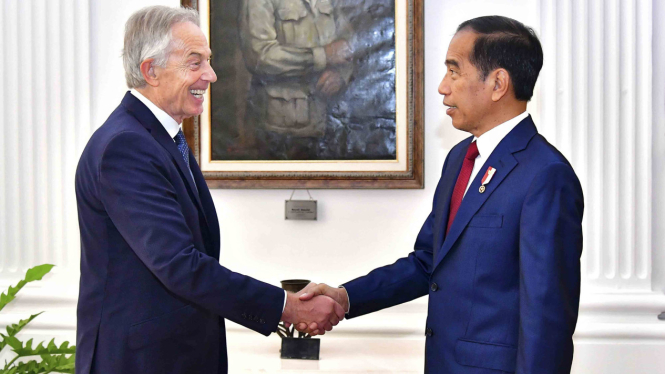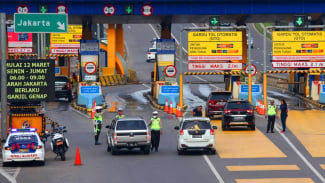VIVAnews - 1 year ago today, on 27 January 2008, Soeharto, former president of Indonesia, passed away.
Soeharto was born in Yogyakarta on 8 June 1921. Less than a month after his birth, his parents divorced and Soeharto had to lived with several different foster households for much of his early life. Later, he was adopted by his paternal aunt who married a low level Javanese official named Prawirowiharjo. Thanks to his uncle-in-law, Soeharto received a fair education early on.
After completing his secondary education, Soeharto worked at a bank for a while. Later, he joined the Royal Netherlands East Indies Army (KNIL) in 1940. During the Japanese occupation, Soeharto joined the PETA, a native auxiliary force set up by the Japanese, after serving as a Japanese police for a while.
In 1945, after Indonesia's independence, Soeharto joined the BKR (the People's Security Agency), a predecessor of the Indonesian military (TNI). Soon he was promoted to the rank of Major and became the commander of Battalion X in Yogyakarta.
Later, Soeharto was appointed commander of the 22nd Regiment of Diponegoro Division in Yogyakarta. It was during this tumultuous time that Soeharto married Siti Hartinah, daughter of a minor noble family of Mangkunegaran house.
On 19 December 1948, the Dutch launched its second military aggression against Indonesia. Not long after the invasion, Yogyakarta fell into the Dutch hands and nearly all of Indonesian leaders were arrested by the Dutch. To regain the national honor, Soeharto, with the assistance of Sultan Hamengkubuwono IX of Yogyakarta, launched a General Offensive (Serangan Umum) against the Dutch positions in Yogyakarta on 1 March 1949. The offensive proved successful and for six hours the republicans were in full control of the capital. After proving to the world that the Republic of Indonesia still existed, Soeharto and his army retreated to the countryside, allowing the Dutch to reoccupy the city.
His heroic resistance against the Dutch helped Soeharto gained national and international reputation as a military strategist. In addition, the United Nations began to take notice of the situation in Indonesia. Soon the UN Security Council ordered the Netherlands to cease its police action and to re-embark on negotiations. After successfully putting down two rebellions in Sulawesi and Central Java, in 1954, Soeharto was appointed commander of the Diponegoro Division.
Later, in 1960, Soeharto was promoted to the rank of brigadier general and appointed chief of army intelligence. In 1961, Soeharto was given an additional command as commander of the Army Strategic Reserve (Kostrad). A year later, he was promoted to the rank of major general and appointed commander of Operation Mandala to wrest West Papua from the Netherlands.
In late 1965, after the Indonesian Communist Party (PKI) attempted a coup in Jakarta, Soeharto took over command of the Indonesian army and crushed the communist rebellion. For the next few months, the army, backed by civil militia, waged a large-scale war against the communist. As a result, many communist ranks and files were killed and imprisoned.
Six months later, on 11 March 1966, Soeharto who has been promoted to the rank of lieutenant general two months earlier, received an executive order from President Soekarno to restore peace and security in Indonesia. This order helped him became the most powerful figure in Indonesia which led to him being elected as acting president of Indonesia in 1967.
On 21 March 1968, after Soekarno was formally deposed, the Provisional People Representative Assembly elected Soeharto as the president of Indonesia. Despite his repressive and corrupt government, Indonesia enjoyed relative peace and prosperity under his administration. The proportion of poor population in Indonesia dropped from 65 percent in mid 1960s to 7 percent in 1990.
On 21 May 1998, in the midst of severe financial crisis and politic turbulences that affected the country since 1997, Soeharto resigned from his presidency. He was replaced by Vice President B. J. Habibie. After his resignation, Soeharto spent most of his time in his private residence. He was tried several times but has never been convicted due to his declining health.
On 4 January 2008, Soeharto was rushed to the Pertamina hospital, Jakarta, after suffering from multiple organ failure. After spending three weeks in the hospital, Soeharto's health worsened after almost all his organ functions failed.
He died on 27 January 2008 at the age of 85.
He was buried in Giri Bangun mausoleum complex in Central Java. Tens of thousands of people in Jakarta, Yogyakarta, and Solo, went out to the streets to bid him farewell. President Susilo Bambang Yudhoyono who led the state funeral for him, declared a week of official mourning to honor the second president of Indonesia.


















